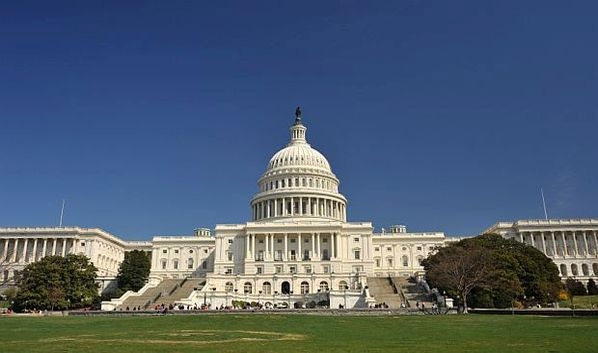Livestock Mandatory Reporting Act also extended in CR signed by President.

President Donald Trump signed a short-term bill on Thursday morning extending current appropriations through Dec. 11. The continuing resolution (CR) averts a federal government shutdown and includes a full replenishment of the Commodity Credit Corp. (CCC) to aid agricultural producers.
The Senate passed the bill on Wednesday by a vote of 84-10. The House passed the bill last week by a 359-57 vote. The new fiscal year began Oct. 1.
Several agricultural provisions were included in the short-term funding bill, including $30 billion to replenish the CCC, thus allowing the U.S. Department of Agriculture to use the program to make payments to farmers without interruption, and extension of the Livestock Mandatory Reporting (LMR) Act, which offers market information and critical transparency on pricing, contracting for purchase and supply-and-demand conditions for hogs. Timely reauthorization of the LMR Act, which was set to expire on Sept. 30, was a top priority for livestock groups.
Trump’s signing of the CR ensures the disbursement of farm bill-related payments and allows the agriculture secretary to tap funds for further relief efforts. USDA's Farm Service Agency started processing payments for the Transition Incentives Program, the Conservation Reserve Program (CRP) and the Emergency Forestry CRP contracts on Oct. 2. Payments will begin processing on Oct. 6 for Agriculture Risk Coverage (ARC) and Price Loss Coverage, on Oct. 9 for other CRP payments and on Oct. 26 for ARC-IC.
National Corn Growers Assn. president Kevin Ross thanked members of the House and Senate from both sides of the aisle who fought to ensure that USDA would have the budget flexibility necessary to deliver on the farm bill’s commitments and support America’s farmers and ranchers.
“Farmers have worked with Congress for years to develop and implement effective risk management tools that ensure a stable feed, fuel and food supply even during the tough times many are facing today,” Ross said.
Congress will need to reach a deal after the November elections on a sweeping appropriations package for the rest of fiscal 2021. The House passed its agriculture measure in July, but Senate appropriators never published their own proposal. The House has passed 11 appropriations bills, while the Senate has yet to hold a vote on one appropriations bill.
About the Author(s)
You May Also Like




.png?width=300&auto=webp&quality=80&disable=upscale)
